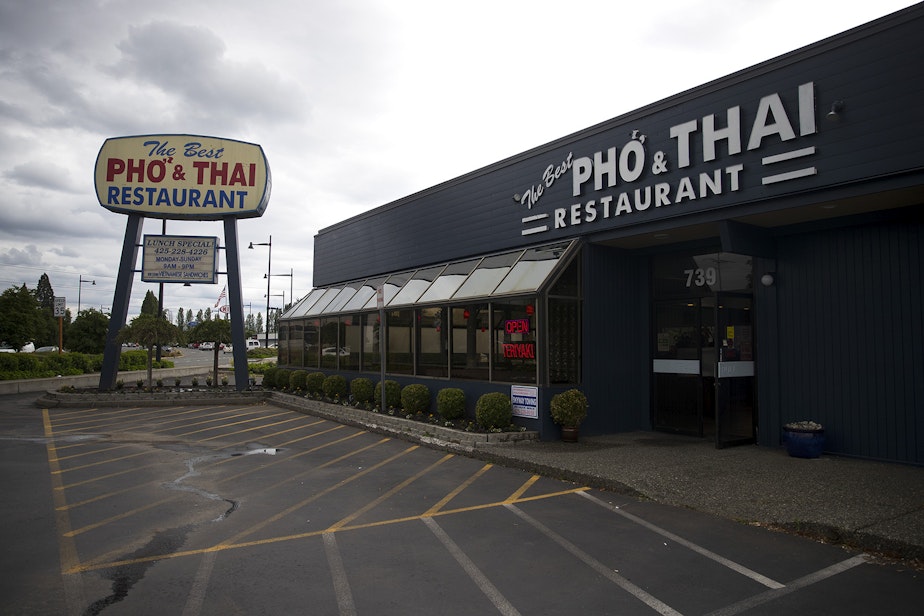'I can't foresee that happening:' King County not expecting clearance for non-essential reopening by June 1

So far, 14 of Washington's 39 counties have been cleared to enter the second phase of reopening the state's economy. That means restaurants, barber shops, and other non-essential establishments in approved counties can resume in-person services with certain safety restrictions in place.
But King County Executive Dow Constantine said Tuesday the county is not poised to take those steps come June 1, the day the state's stay-at-home order is currently slated to lift.
State officials have outlined a four-phase approach to reopening non-essential businesses amid the pandemic. The strategy is aimed at allowing the state to reopen on a county-by-county basis, using Covid-19 outbreak data to make those determinations.
The criteria to move into Phase 2 require, in part, that a county have 25 or fewer new cases of Covid-19 per 100,000 residents, over the span of 14 days.
Constantine told KUOW's The Record that the status of the coronavirus outbreak in King County isn't such that the county will meet current requirements for reopening by the start of June.
“We are not approaching the numbers — the benchmarks that are set out under the most recent state orders,” he said. “So unless the rules are going to change, which they of course could, I can't foresee that happening.”
King County reports a total of 544 Covid-19 deaths and 7,896 confirmed cases as of Tuesday afternoon. Those numbers include two new deaths and 17 new cases since Monday.
Sponsored
Constantine pointed to the potential for more vulnerable populations to be disproportionately impacted if social distancing restrictions are rolled back prematurely.
“The fact is that there are 2.3 million people in King County, most of whom are not infected — nor have they been infected with the coronavirus,” he said.
“But also in a lot of places, there is a much greater chance that if infection gets started, it's going to spread to the point where we can't control it because of the number of people in close proximity. And we see that evidence constantly and across the state, in places like nursing homes and homeless shelters.”
The state's criteria also stipulate that counties have adequate Covid-19 testing and contact tracing capacity to move into the second phase of reopening.
“Are we building the capacity to trace positive cases, to do more testing, to make sure that if there is an outbreak, we're catching it early? And making sure to rein it in? And I think that is an open question,” Constantine said. “But it's one that we need to be really vigorously engaged with the state.”
Constantine said that while he didn't expect any of King County to be approved for phase two by June 1, a discussion about potentially reopening rural pockets of the county earlier than urban areas is warranted.
Sponsored
“We are going to need to continue to have a conversation about taking a finer cut at King County — at the geographies, at the industries,” he said. “Because it is so big and so complex, it is an entirely different animal than the smaller rural counties that the state has been moving to phase two.”
However, any official decision regarding the county's reopening eligibility must ultimately be made at the state level. In the meantime, Constantine said he believes the county could feasibly scale back some social distancing restrictions without exacerbating the local epidemic.
“There are a lot of folks who need some of these basic activities,” he said. “I think it is a legitimate question to ask, which of those things can be done safely? Or rather, how can those things be done with the greatest safety, and are they really that much more dangerous than things that are already being done in the community? I would say 'no'.”
Bill Radke contributed to this report.
This story has been updated to reflect new information on Phase 2 reopening criteria.




